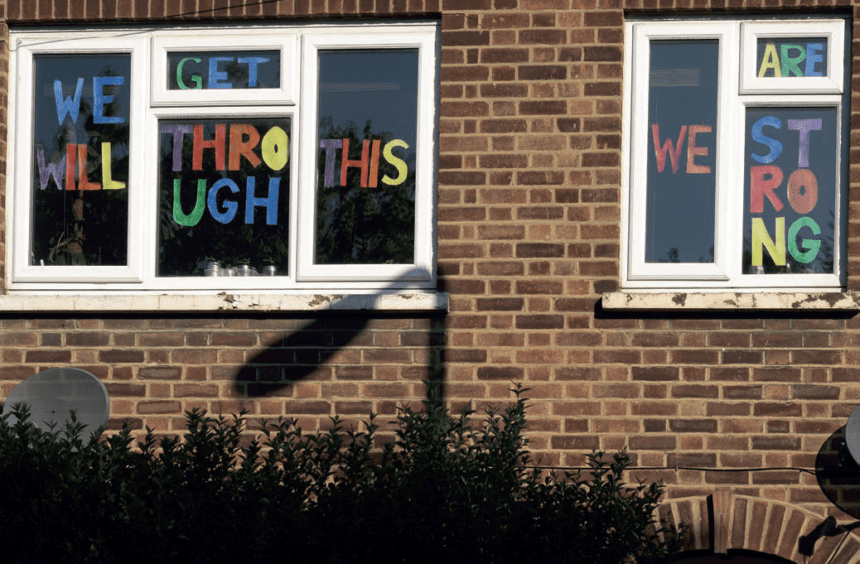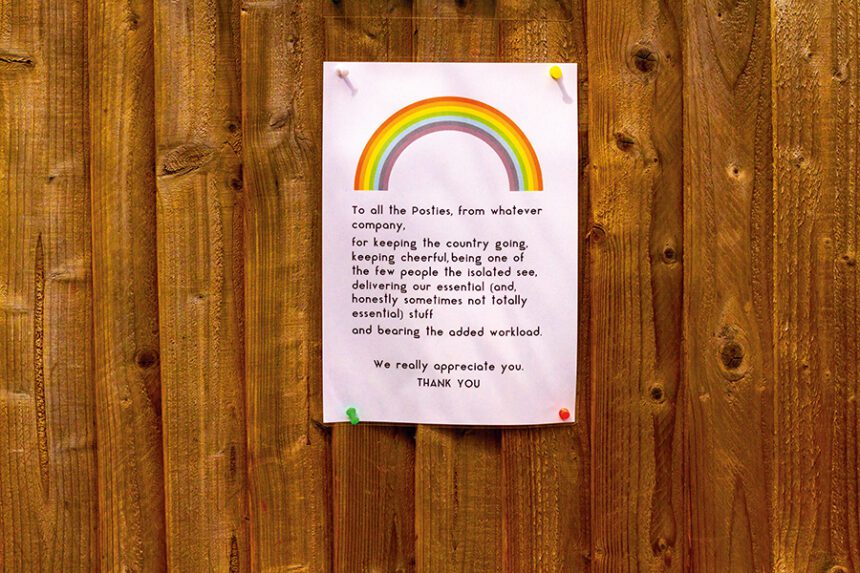Phil Park reflects on changing our focus in challenging times
This article was published in the May to August 2021 issue of Rapport magazine.

On a training course I attended many years ago, the trainer said, ‘What you believe is important because it becomes your reality.’
I chewed on that statement for months. At first I didn’t like it because it seemed to imply you can choose your reality. However, over time, I came to see that it is crucial in all areas of life. I tried to understand what it was that I believed about my life, other people, and events that unfolded around me and, most importantly, what I believed about God because that would be what drove my response and my actions.
Challenges in every generation
The pandemic has spawned many headlines that have perhaps overused superlatives like ‘unprecedented’. History shows that this pandemic is unfortunately not unprecedented. Down the ages every generation has had its share of plagues, wars, famines and natural disasters, many far worse in terms of their impact than the current virus. That, of course, is not to downplay the personal impact that every death, wherever and whenever it happens, has on the
friends and family of the deceased. It is too easy to think that in other times, other places, and other cultures, somehow death had or has less of an impact.
After my sister died at a young age I recall going through the ‘why her?’, ‘why now?’ questions. Eventually I found relief when I stopped thinking ‘why me?’ and started thinking well actually, ‘why not me?’ Thousands of others around the world would have died at the same time on the same day with the same impact on their families. What reason did I have to expect that somehow our family would be left untouched by the one certainty we must all expect?
Owning up honestly to ourselves about how the pandemic makes us feel seems an important starting point. This virus has exposed everyone’s fragility and vulnerability, it has also isolated us from friends, family and church support, so it is not surprising if we feel frightened, uncertain, lost, worried, sleepless and lonely, and more than a little bit annoyed with God for letting it happen. Pretty much everyone is feeling the same way so there may be a small crumb of comfort that we are sharing in this communal fear. It’s also fair to ask where God is in it all, so it
matters what we think about who and what God is.

The way of love
In Rob Bell’s book What is the Bible? he makes the point that, in the Old Testament, God seemed to be repeatedly saying to a people, who were very familiar with a range of capricious and wrathful pagan gods who needed to be appeased, ‘look, I am God, but I am not like the gods you know about’. Some of the time they got it, some of the time they reverted and went back to their old, familiar ways and idols. In the New Testament we have a picture of Jesus doing something similar, ‘I am the Messiah but not the one you think’. Jesus had come as a friend and brother and as
a servant King, not as an avenging commander of troops to overthrow their enemies. Both are stories about God coming to be with His people to share in our lives and demonstrate a different way of being, a new way of loving others, a different way to respond to the world and the crises in our lives. He gave one simple overriding commandment, to love one another.
We will all look to our own heroes of the faith who help guide our thinking and as sources of comfort. One who has influenced me is John Polkinghorne, professor of quantum physics and Anglican priest, who said something like this, ‘Our theology must adapt in the light of emerging knowledge.’
What is true
We only have to look at the way the church dealt with Galileo when he challenged their dogma that the universe revolved around the earth to see what happens when we allow a rigid theology to override truth. The fact is that truth is truth wherever we find it. There is a tendency to hold on too tightly to truths that have been important to us or that we have been taught believing them to be inviolable and eternal, but the reality is that they can be incomplete. They need to be put into practice with love and care. And sometimes things we thought to be truth are just plain wrong. Do we need to learn to be more flexible if we are to look for fresh revelations from God?

So where is God in the pandemic? He is where He always has been – right alongside in the messiness and confusion. He’s with the people who are working to alleviate the crisis, the doctor, nurse, scientist, the postman,
bin man, the volunteers who staff the vaccination centres, the person who looks after their neighbour, and the lonely, who for the sake of the wider community stay home. He’s in the smallest of helpful actions and attitudes. Perhaps the question is not ‘why me?’ but do we want to be part of the problem or the solution?
Phil Park

Phil Park was on the Lee Abbey Devon Estate Team 1979 to 1985; Devon Board member 2003 to 2013; then Estate and Buildings Director 2013 to 2020. He is now retired and lives in mid-Wales.
